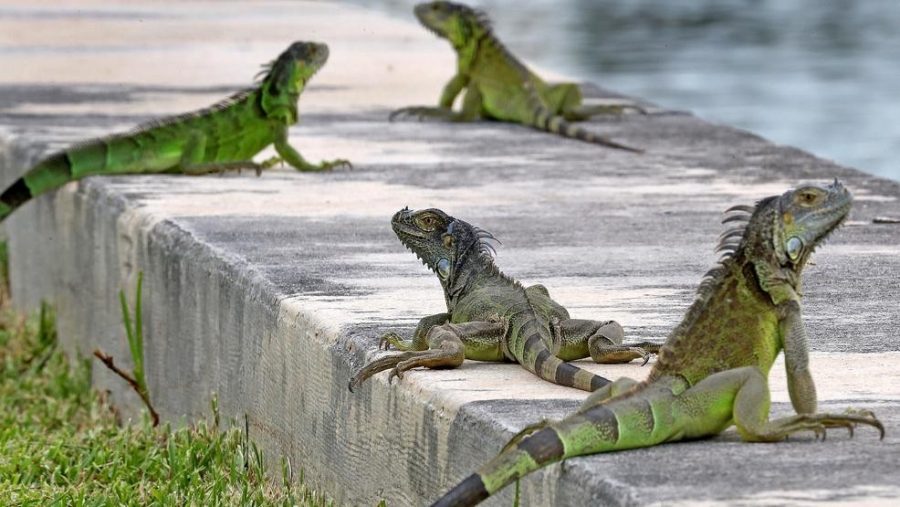Iguana Invasion
August 26, 2019
Over the years, Florida has been faced with major issues with an overpopulation of iguanas, and it has become an increasingly prominent issue recently. These green iguanas are a non-native species to Florida and are extremely invasive. The first sightings of these iguanas were reported in the 1960s along Miami-Dade County’s southeastern coast. Many of them are now spread across most of Florida, specifically, the Atlantic Coast in Broward, Martin, Miami-Dade, Monroe, and Palm Beach Counties and along the Gulf Coast in Collier and Lee Counties. The sightings from the more northern counties are most likely a result of the pet trade. Citizens of Florida would keep them as pets and then would realize that they could not take care of them as they pictured, and release them into the wild. 800,000 iguanas were imported into the U.S. in 1995 alone. The original small populations in the Florida Keys were stowaways on ships carrying fruit from South America.
Green iguanas can easily thrive in Florida’s naturally tropical climate and lack of predators. Although they can easily live here, it is not so easy for Florida’s residents to coexist with them. These iguanas are causing loads of damage to the infrastructure and citizens are enraged. They eat all types of plants and small animals which can pose a threat to native, endangered species. Iguanas can also carry and spread salmonella which can harm humans and make them sick. Floridians are now encouraged to make their properties less appealing to the iguanas by removing plants they like to eat and remove dense bushes that provide them shade. Some even spray the reptiles with water or hang up wind chimes that make irritating sounds that scare them away and they are also advised to fill in their burrowing holes.
These intrusive residents are not protected under any Florida laws except for anti-cruelty laws, and Floridians are permitted to humanely kill them on their property without a permit. The FWC even encourages killing them because they pose such a threat to other species and the state’s ecosystem. Hopefully, in the future, we will be able to figure out a humane way to fix this issue in Florida and relocate the Iguanas back to Central America safely.













































